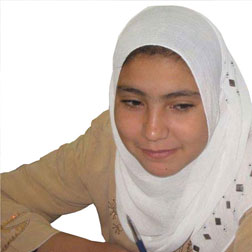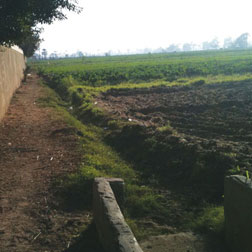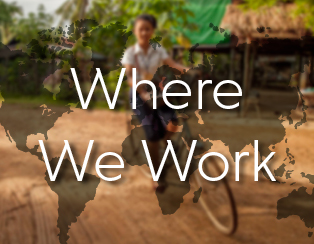EGYPT
Technology for Improved Learning Outcomes
Egypt, home to one of the world’s oldest universities and once a center of education, faced an illiteracy rate of 47 percent two decades ago. The government launched a series of reforms in the early 1990s that pushed the literacy rate to 71 percent. Now, the government wants to move to the next level: improving the quality of teaching and learning through education technology.
The Technology for Improved Learning Outcomes project improved students’ academic achievements by creating better learning environments, teaching styles and school administration with the help of technology.
Funded by USAID, the Technology for Improved Learning Outcomes project followed a demand-driven approach in which schools applied to participate and demonstrated a willingness to follow through with the entire implementation process and create a plan for sustainability. The program was implemented in nine governorates: Alexandria, Cairo, Giza, Fayoum, Beni-Suef, Minya, Assiut, Qena and Aswan.
A core strategy of project was developing public private partnerships to increase stakeholder engagement, promote innovation, share responsibility for sustainability and build capacity at the Ministry of Education. More than 120 international and local public private partnerships–with local multinational corporations like IBM, Microsoft, Oracle, Houghton Mifflin Harcourt, Discovery Channel Global Education Partnership, Hewlett Packard, HSBC Bank, and Exxon Mobil–contributed more than $9 million. In its Portfolio Internal Review in November 2009, USAID highlighted the Technology for Improved Learning Outcomes project as model for building public-private partnerships.
Approximately 245,000 students in more than 400 primary and preparatory schools participated in the development of the project model to fine tune the system for maximum local ownership, effectiveness and expansion.
The results were impressive. Impact evaluations in 2010 and 2011 revealed that teaching and learning practices improved dramatically with more than 30 percent gains in teacher practices shown to support critical thinking and the Egyptian education standards and early evidence of increases in midterm exam scores among students in participating schools.
FEATURED NEWS

EGYPT: Modern Teaching Practices Spur 15-Year Old to New Beginnings
Safaa is 15 years old and lives in the small village of Abou Harb, 50Km north of Menia. Dropping out of school at 10 years old, she had received little education, and was intimidated by teacher attitudes. Learn More...

EGYPT: Dreams of a Village Preparatory School Realized Through TILO/DCGEP Intervention
During a visit to Cairo in June 2009, President Obama told the Egyptian public, “I do believe that a woman who is denied an education is denied equality. Learn More...


